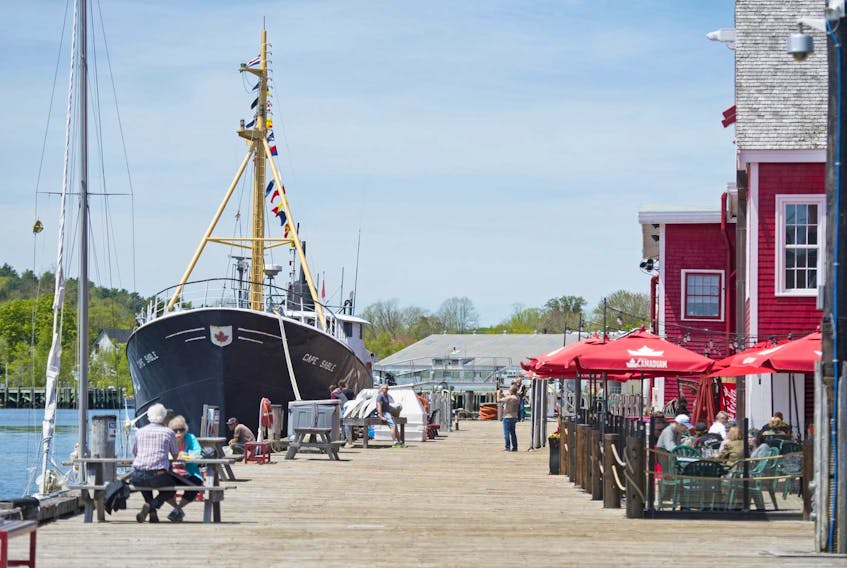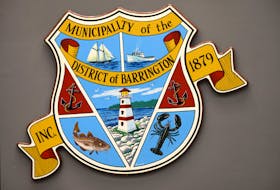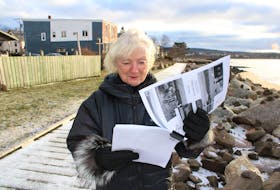Some of the challenges of 2018 remain for leaders along the South Shore.
The roads are still potholed, there are still straight pipes emptying into the LaHave River and some residents still don’t have adequate internet.
These shortcoming are reflected in the scheduled projects by all three levels of government and are, to an extent, continuations from last year’s efforts.
But 2019 has its own set of challenges; it is an election year and the clock is ticking on the Liberal government to fulfill last election’s promises.
Federal initiatives
No one is more aware of the lingering challenges — and time crunch — facing the government than Bernadette Jordan, the Liberal MP for South Shore-St. Margarets.
“I still feel like I have a lot to accomplish, a lot to offer,” she said during a sitdown interview with the South Shore Breaker.
Jordan will run for a second term and will be continuing to work on several of the same issues which got her elected in 2015.
However, she has a new challenge: in the most recent federal cabinet shuffle, Jordan was named Minister of Rural Economic Development.
Given her riding, Jordan is well acquainted with the challenges facing rural Canadians.
Previously, her goals included twinning the 103 Highway, cleaning up the LaHave River, improving rural broadband, addressing abandoned and derelict vessels and helping small craft harbours.
“I’ve been really happy to move the needle on all five of those things in the last three years,” she said.
But moving forward into 2019, Jordan noted she will be working with all levels of government to improve internet throughout her riding and as minister, in ridings across the county..
“Rural broadband is something extremely vital to making rural economics grow,” said Jordan. “I really want to see that become a major focus for me during the campaign.”
She added that the collaboration of federal, provincial and municipal governments will be key in meeting her goals.
“It works best when all three levels of government are on the same page,” she said.
Jordan pointed to the LaHave River clean up as an example of what can be accomplished when governments collaborate.
“It’s a three way split for the funding. That’s what happened for the LaHave River,” she said.
Other topics which Jordan said she hoped to address moving forward include poverty reduction and help for seniors.
“These are all issues that we’re struggling with in rural Nova Scotia. Those are all things that (are) on my radar for the next mandate,” said Jordan.
Municipal matters
Carolyn Bolivar-Getson, the mayor for the Municipality of the District of Lunenburg (MODL), also said that many of the projects on council’s radar are continuations from 2018.
“A lot of the projects we have on the books right now are multi-year. We have the LaHave River clean up, where we intend to be straight pipe free by 2023,” she said.
Although Bolivar-Getson allowed progress had been made — with more than 75 septic systems put in during 2018 — she was adamant that more needed to be done.
The challenge, she added, is that many who installed septic systems last year were volunteers.
“It will get more difficult as we get to the end of these,” she explained.
Still, Bolivar-Getson was optimistic that more than 100 systems would be replaced throughout 2019.
And like Jordan, MODL has also prioritized improving internet throughout the municipality.
Another project on MODL’s radar is a new municipal building, given that the current one is 47 years old.
When asked about her expectations, Bolivar-Getson said the topic needed to first be debated by council.
“If council decides this is the direction we are going, I’d like to see us break ground and move forward,” she said. “Council has to be onside with this. There will be lots of discussion before we move forward.”
Having said that, MODL has already brought up the issue several times during public consultations.
The main concern raised during these meetings was the need for the municipal building to actually be built within the municipality and not in the Town of Bridgewater like the current building.
Bolivar-Getson added MODL is currently considering Exit 12 as an option and the municipality has already set aside the money for the project is necessary.
Collaboration amongst governments was also stressed by Bolivar-Getson.
“Without the support of all three levels of government, none of these projects are possible,” she said.
Bridgewater’s goals
Bolivar-Getson’s sentiment was one echoed by Bridgewater Mayor David Mitchell, who said he hopes to continue to work with federal and provincial governments on several issues.
“We need to upgrade and update our wastewater systems and that takes money. We can’t do it alone,” he said.
These updates, added Mitchell, are a result of the town’s rapid growth.
“We continue to be one of the fastest growing towns in the province. I don’t see that slowing down anytime soon in Bridgewater,” he said.
In many ways, last year was a landmark year for Bridgewater and Mitchell said the first few months of 2019 are crucial for the town.
“2019 is when we find out if we are a Smart Cities Challenge winner. If that becomes a reality, it changes the entire narrative for the Town of Bridgewater and what we can do for our people,” said Mitchell.
The town is currently one of five communities across Canada competing for a five million dollar prize as a result of it’s Energize Bridgewater program.
And in addition to last year’s accolades, Mitchell said the town has big plans for the program moving forward.
“A huge focus will be on Energize Bridgewater and converting homes to make them more efficient,” he added.
February will also see further discussion on banning plastic bags amongst the province’s 10 regional urban centres, a topic on which Bridgewater has previously taken a leadership role.
Together, the urban centres—which represent nearly 75 per cent of the province’s population—will work together to draft a by-law.
Bridgewater’s town council is slated to discuss the topic this month.
In a previous interview with the South Shore Breaker, Mitchell shared his excitement at the province’s centres working together.
“I think it represents an opportunity for the province as a whole when you have such a large group working together,” he said.
As a parting word, Mitchell stressed the town’s growth these last few years.
“We’re only just scratching the surface here in Bridgewater,” he said, adding that he expects the town to garner regional and national attention for its programs.
Moving forward in Lunenburg
And that feeling of momentum is one shared by many throughout the South Shore.
Lunenburg Mayor Rachel Bailey said she expects great things throughout the town this year.
Further developing the Lunenburg Academy, she said, is at the top of the list.
“We’ve got great momentum there and need to address the challenges that are still there with the building and the site. I think the site still needs some attention,” she said, adding that plans have been drawn up to develop the surrounding area.
Another project Bailey mentioned was developing a comprehensive community plan.
The town will be working with a consulting firm over the next two years to develop a new municipal planning and land use by-law.
“We have those documents now that are in need of updating. Rather than work with them alone, we’re going out into the community and looking for input and feedback and help in putting together a comprehensive plan,” she said.
Bailey noted that the town will be continuing to work on addressing the wastewater treatment plant and harbour water health.
At this time, the town is awaiting a report from the Bluenose Coastal Action Foundation concerning the testing that took place throughout this past summer.
“We need to have a better understanding of what we’re dealing with,” she said. “Our challenge is trying to figure out how to make it better.”
To help deal with the issue, Lunenburg partnered with the Bluenose Coastal Action Foundation and created the Lunenburg Harbour Health Advisory Group.
Bailey said the town is also working with scientists beyond the community and will continue to address the issue moving forward.
“We’ve taken a number of initiatives to see what we need to do,” she said.
Bailey noted the town will host its usual list of festivals throughout the summer and will continue to be a draw for tourism.
The Folk Harbour Festival, the Lunenburg Literature Festival and others will be just some of the expected events.
Overall, Bailey said she is looking forward to the year ahead.
“I’m very encouraged by recent events at the end of the year with reports winding up and the expectation and anticipation of being given some direction on some very challenging issues,” she said.









